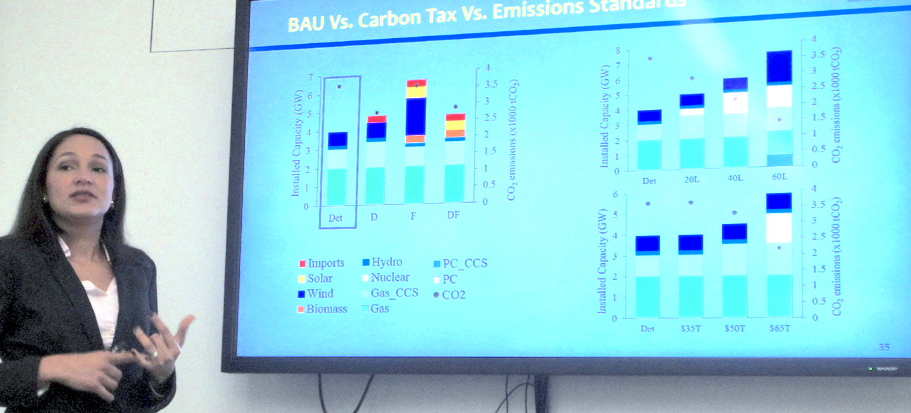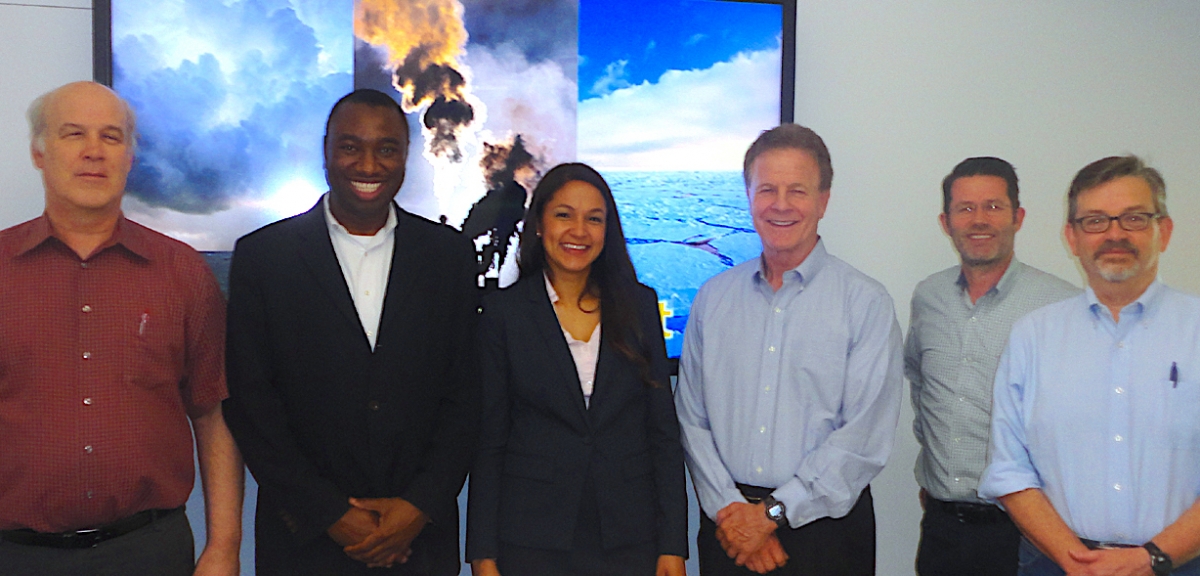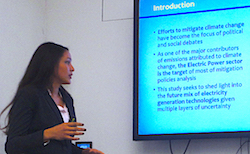Dr. Ilka De Luque made a marvelous presentation of her research project about electric generation technologies on April 24, 2017. The title of Ilka’s dissertation is “Essays on Investments in Electricity Generation Technologies Under Multiple Uncertainties.”
Ilka’s research sought to develop a policy analysis evaluation tool to facilitate investment decision-making considering the impact of multiple uncertainties on the future mix of energy systems. She examined how policy uncertainty influences optimal allocation of research and development investments in conventional technologies, such as coal and gas, versus non-fossil technologies, such as solar, wind, geothermal, and biomass. To answer this question, she applied optimal control theory with uncertainties in the magnitude and timing of two market-based environmental policies to model R&D investments on fossil and non-fossil generation technologies.
 Modeling generation technologies implicitly, Ilka solved the model analytically using dynamic programming, as well as achieving a deeper and more intuitive insight employing the Runge-Kutta algorithm.
Modeling generation technologies implicitly, Ilka solved the model analytically using dynamic programming, as well as achieving a deeper and more intuitive insight employing the Runge-Kutta algorithm.
She also addressed the manner in which uncertainties in electricity demand, capacity factor, and environmental policy affect decisions on the optimal allocation of generation capacity expansion investments. To address this question, she modeled generation technologies explicitly and applied a two-stage stochastic optimization framework with recourse to the generation expansion problem in order to unpack the effects of simultaneous uncertainties across three dimensions (regulatory, capacity factor, and demand).

She found that, when uncertainties in electricity demand and capacity factor are simultaneously considered under any of the emissions policies analyzed in her study, no single uncertainty dominates the other but instead they are complementary. Specifically, capacity factor uncertainty will dictate the types of technologies to be deployed while demand uncertainty will determine the amount of capacity to be installed or purchased. Furthermore, when all uncertainty dimensions are considered, uncertainty in CO2 emissions policy will add generation capacity to the demand and capacity factor dimensions, dictating what types of technologies are included in the generation mix.
 Ilka’s dissertation research was guided by her Dissertation Director, Assistant Professor Ekundayo Shittu. Also serving on her Disserta tion Research Committee were Professors Thomas Mazzuchi, Rene Van Dorp, Jonathan Deason and Peter Linquiti (Director GW’s Environmental Resource Policy Program). Previously, Ilka earned her B.S. degree from Ponticia Universidad Javeriana in 2007 and her M.S. degree from GW in 2011. Ilka has accepted a positon with the World Bank in Washington, D.C.
Ilka’s dissertation research was guided by her Dissertation Director, Assistant Professor Ekundayo Shittu. Also serving on her Disserta tion Research Committee were Professors Thomas Mazzuchi, Rene Van Dorp, Jonathan Deason and Peter Linquiti (Director GW’s Environmental Resource Policy Program). Previously, Ilka earned her B.S. degree from Ponticia Universidad Javeriana in 2007 and her M.S. degree from GW in 2011. Ilka has accepted a positon with the World Bank in Washington, D.C.


